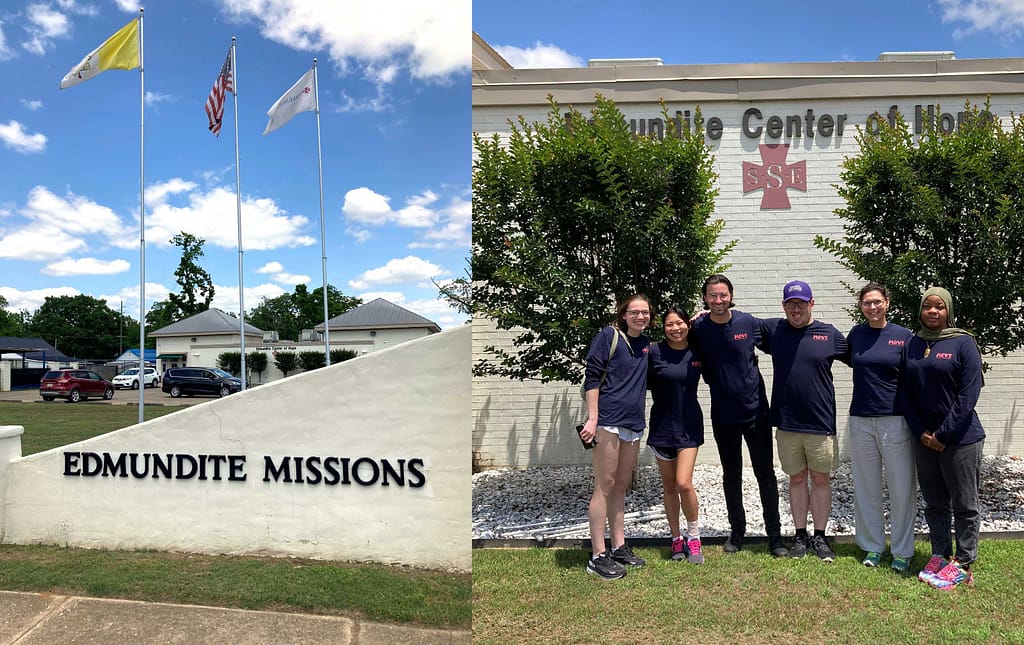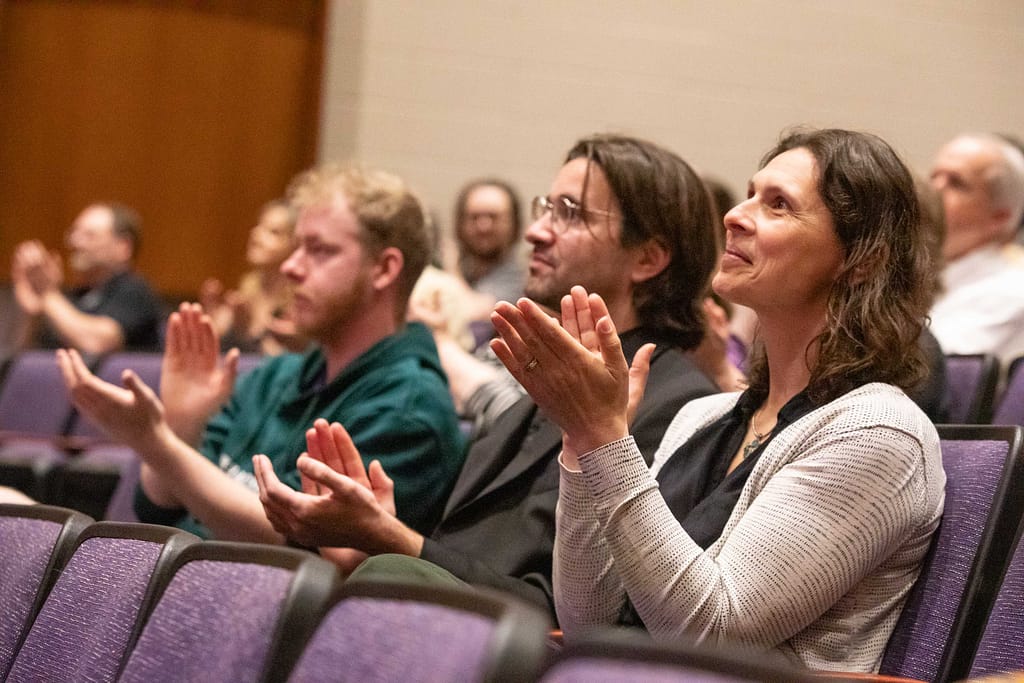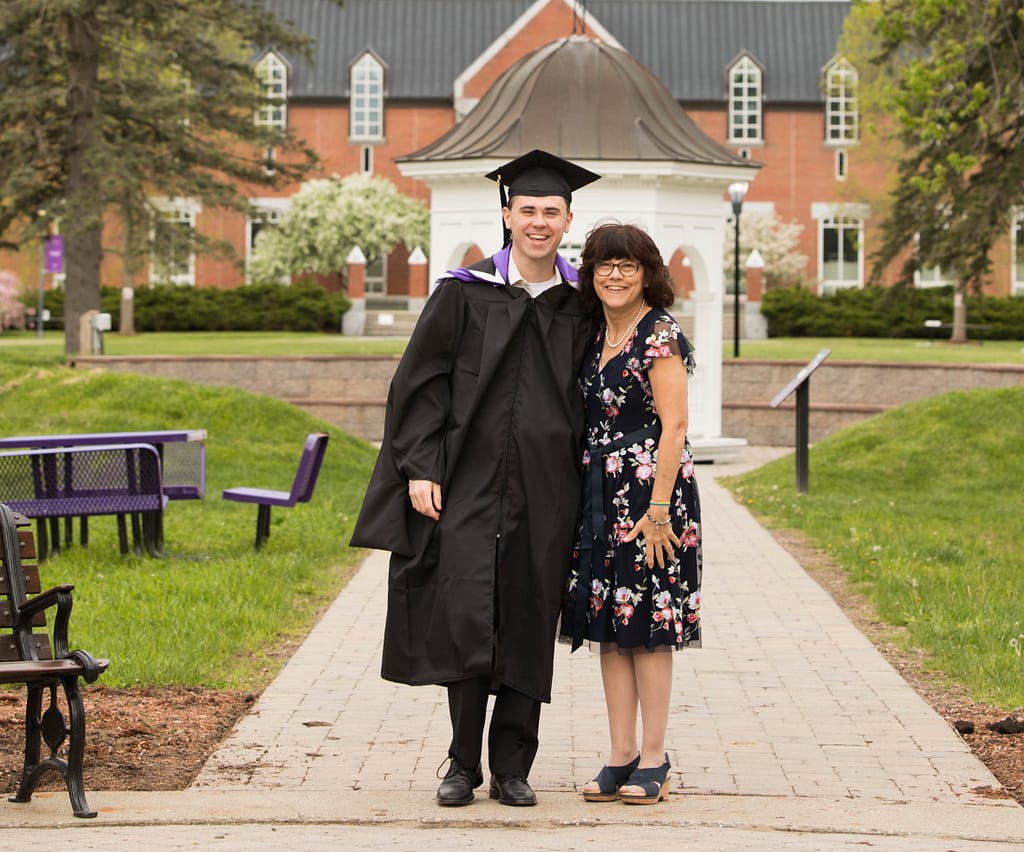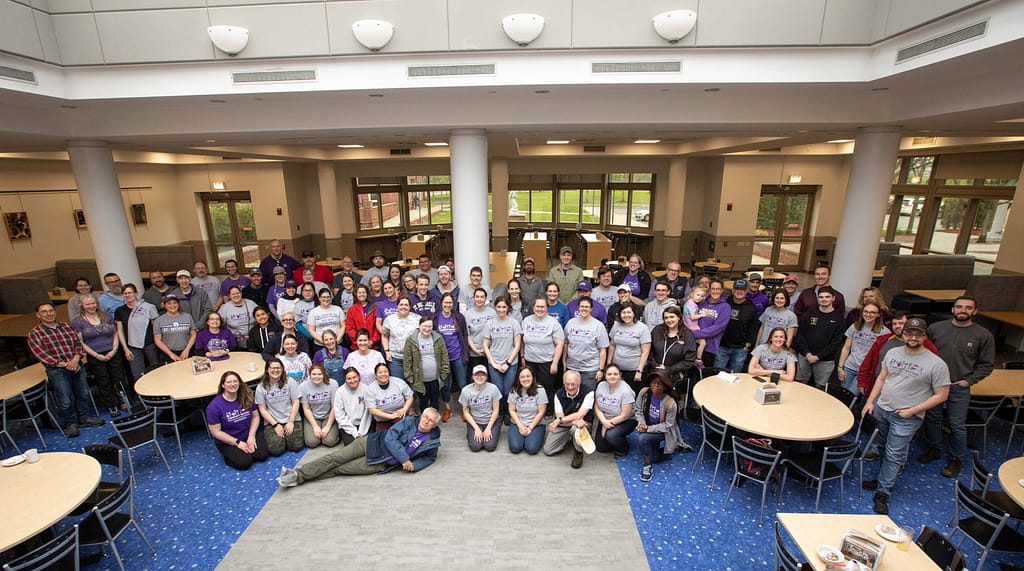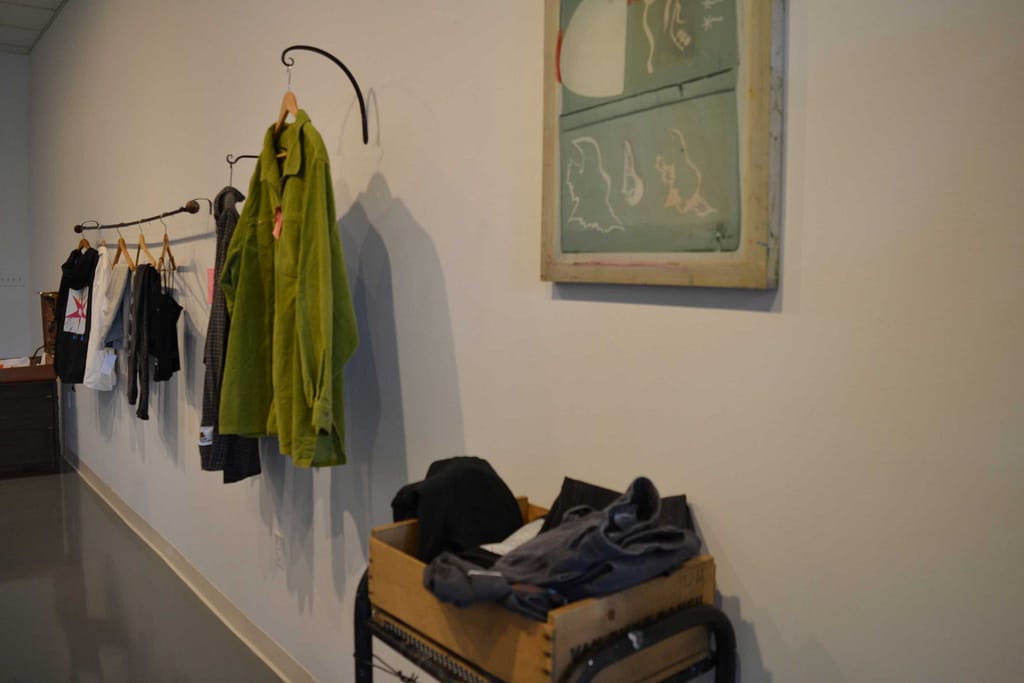Human trafficking event raises awareness
On February 9, Saint Michael’s College hosted a conversation and reflection on human trafficking in the Roy Room to raise awareness. Omara Rivera-Vazquez, Saint Michael’s Director of the Center for Equity and Justice, introduced the guest speakers.
“Many in the state of Vermont do not understand the scope of the problem of human trafficking, and creating awareness is very necessary,” Rivera-Vazquez said before introducing the first speaker, Edith Klimoski, an advocate for student trafficking.
Edith Klimoski has been the executive director of Give Way to Freedom since 2009, which is a statewide private foundation that builds nationwide partnerships. The foundation creates collaborative networks of professional alliances on political issues, especially those advocating for victims of human trafficking. 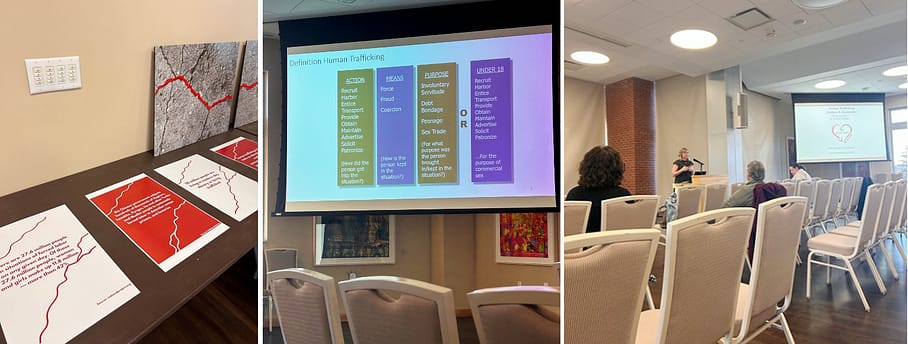
Klimoski introduced Catherine Ducasse, an advocate for human trafficking and the associate director of Hopeworks, a nonprofit that serves survivors of sexual violence in Chittenden County, by providing victim advocacy, therapy, and healing groups. Ducasse and Klimoski collaborate through direct services that raise awareness about the different types of trafficking.
Klimoski began her presentation by defining what human trafficking is. She said human trafficking is, “The use by someone, by force or fraud or coercion, or a combination, to exploit them and do something so that person can make money.”
Klimoski emphasized that manipulation is a major factor in trafficking, and traffickers often seek out vulnerable people who are clearly in need of a job or money. She also explained how there are a variety of different methods of human trafficking, but primarily people are being labor trafficked, and sex trafficked. Both types of trafficking have one main goal: To make money and profit off of the person being used fraudulently. Klimoski explained human trafficking is a system built on lies and coercion. She said humans are being turned into puppets who are being lied to about where they are financially.
“The traffickers can pick up on those vulnerabilities, and also create more vulnerabilities…They pull them in and the people that have the vulnerabilities are pushed in and feel like they don’t have a lot of choice,” Klimoski said.
Although there is not an abundance of human trafficking cases in Vermont, instances still happen here. Sister Pat McKittrick, an advocate from the organization Sisters of Providence, is based in Winooski. She has direct experience with helping victims of human trafficking and shared a story of a victim from Burlington. She referenced the severe housing problems in the city of Burlington and said this has a direct correlation with trafficking.
McKittrick said she met a young woman who was new to Burlington. The woman was an international student from Asia and came to Vermont to learn English. McKittrick introduced the young woman to community members and asked her to reach out if she needed anything.
“She came from China. She has a student visa, and when she got here, she was being trafficked for labor,” McKittrick said.
This young woman was living in an apartment with nine other girls. They were all sleeping on the floor and paying way more for the apartment than they should have been.
“They were promised employment but were exploited with their money from beginning to end,” McKittrick said.
At the end of the conversation Father Marcel led a prayer to reflect and sympathize with the victims of human trafficking.
The panelists left the audience with bags of red sand to pour onto the paths of campus, illuminating our paths with bright red. Rivera-Vazquez explained the symbolism behind this action.
“Think of the red sand in the cracks as victims of human trafficking who are falling into the dangerous cracks of society, we need to raise awareness on campus,” she said.
